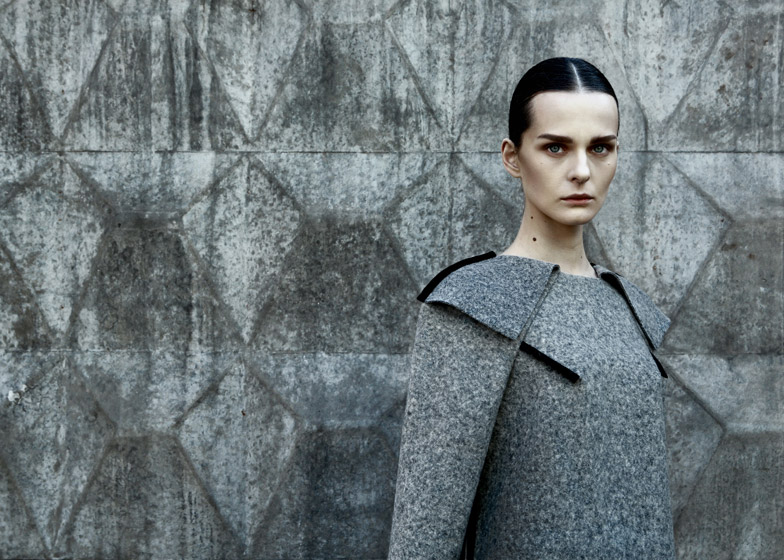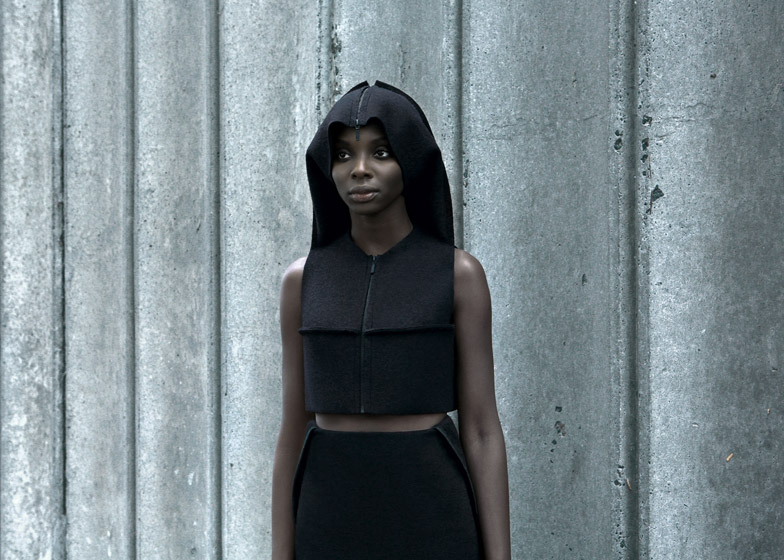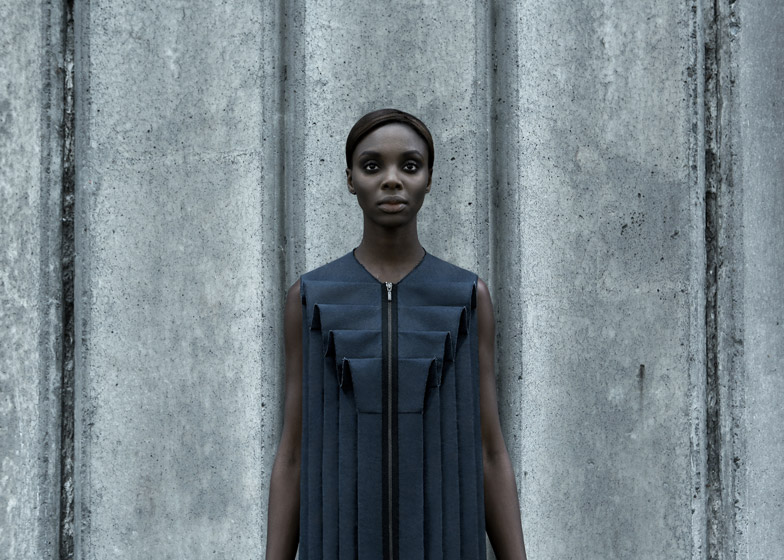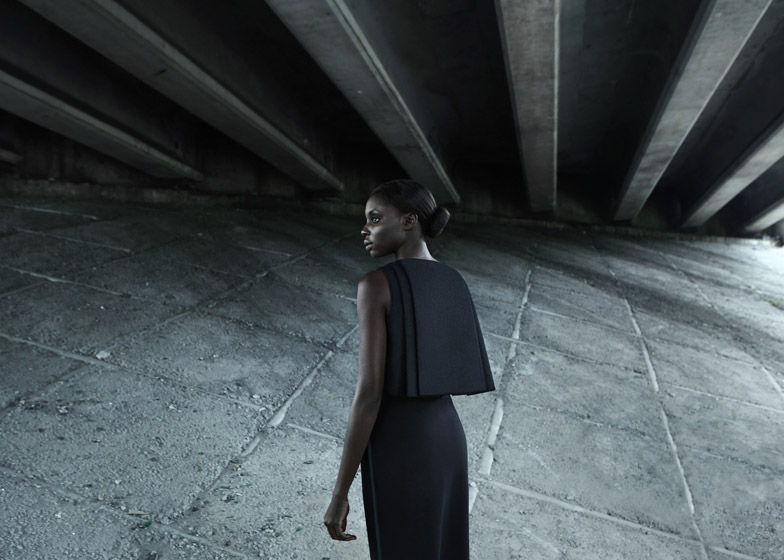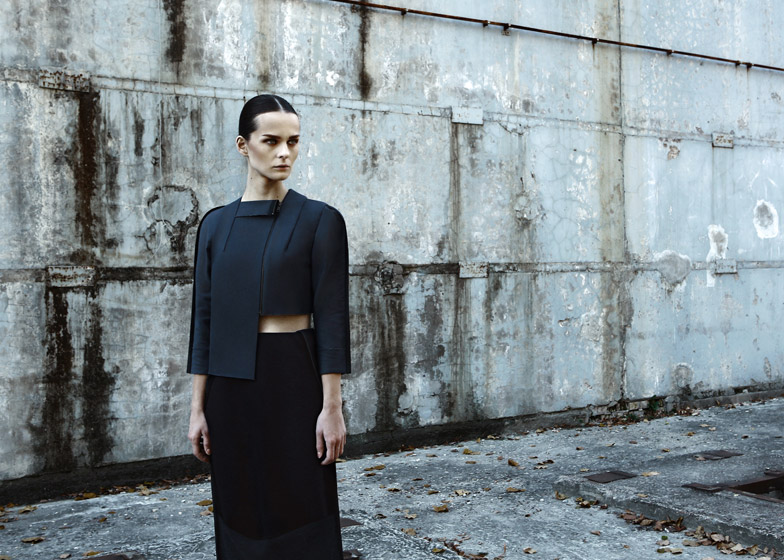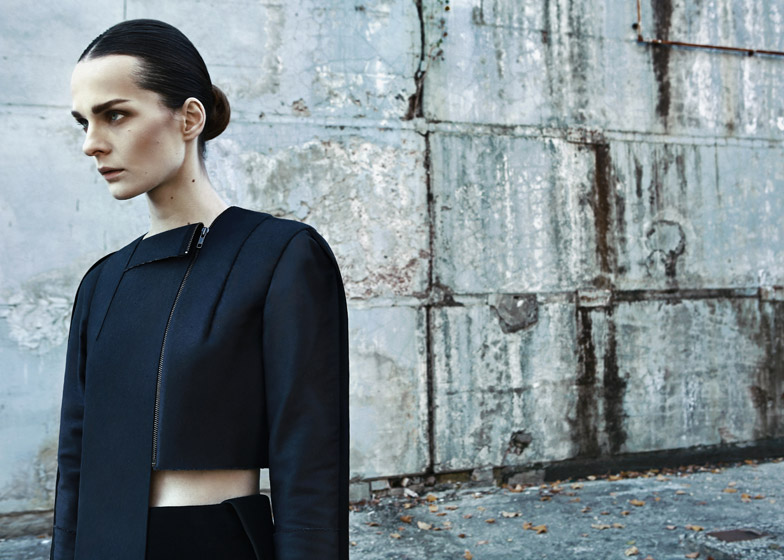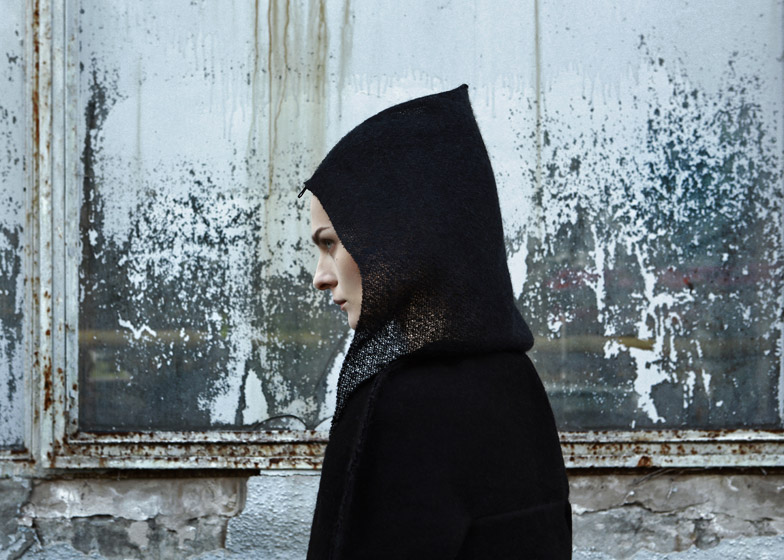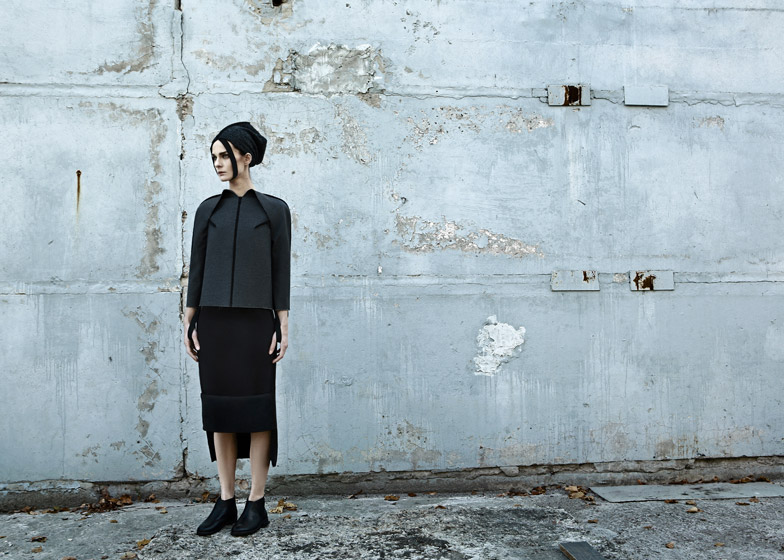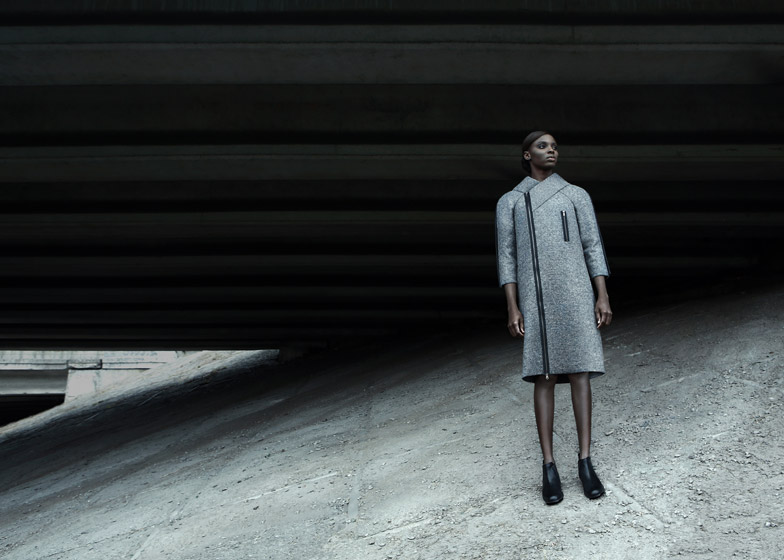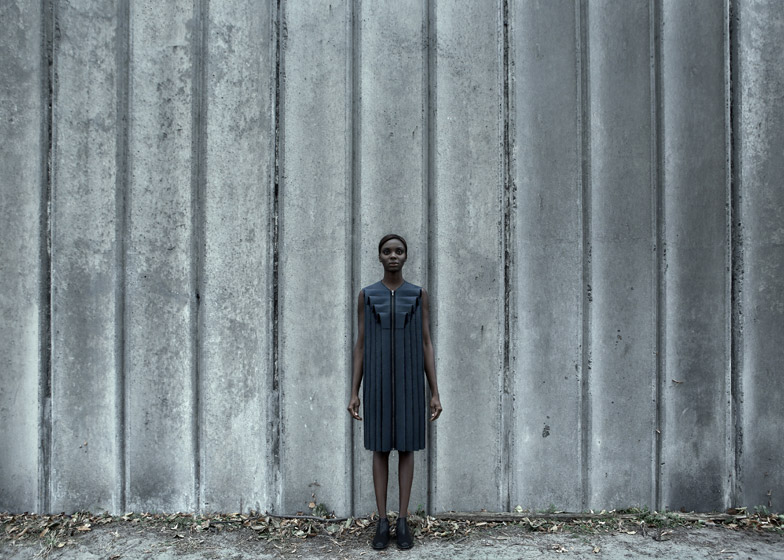Folded felt garments in this austere fashion collection by Ukrainian brand DZHUS reference the aesthetics of 20th-century Totalitarianism (+ slideshow).
The brand's founder Irina Dzhus based her Totalitarium collection for Autumn Winter 2015 on styles associated with the Totalitarian political regimes of Germany, Italy and the Soviet Union between the first and second world war.
During these regimes, the state attempted controlled all aspects of society and discouraged the expression of personal identity.
Dhzus' collection features an somber palette of black and grey, and is made with materials typical of the era's functional garments such as knitted and felted wool, and heavy cotton used to make worker's overalls.
Straight silhouettes and angular shoulders are designed to mimic the monumental structures commissioned by leaders of the regimes, while the textured grey fabrics evoke the concrete used to build them.
"Terrific palaces and awe-inspiring monuments of the époque are haunted with the solemn spirit of industrialisation," said Dzhus. "The utopian ideology glorifies an image of the working-class heroine, so stern and so pure."
Some of the garments appear almost armour-like, while others are reminiscent of ritualistic robes.
Back panels of tops extend up to form pointed hoods, some of which are attached using bands that wrap around the chin.
Folded sections of fabric create sharp pleats over one shoulder and down the back of an ankle-length dress.
The pleats on the front of a shorter dress are staggered inward to look like architectural motifs.
"The geometrical pleats interpret architectural elements of Constructivism and Totalitaristic Classicism," said Dzhus, whose Autumn Winter 2013 collection comprised angular textured garments accessorised with concrete cuffs.
Hems are left purposefully unfinished, while black piping is used to highlight some of the seams.
"Special finishing, such as raw hems and exposed seam allowances, some piped with elastic, accentuates the technological nature of the designs," said Dzhus.
Photography is by Olga Nepravda.


